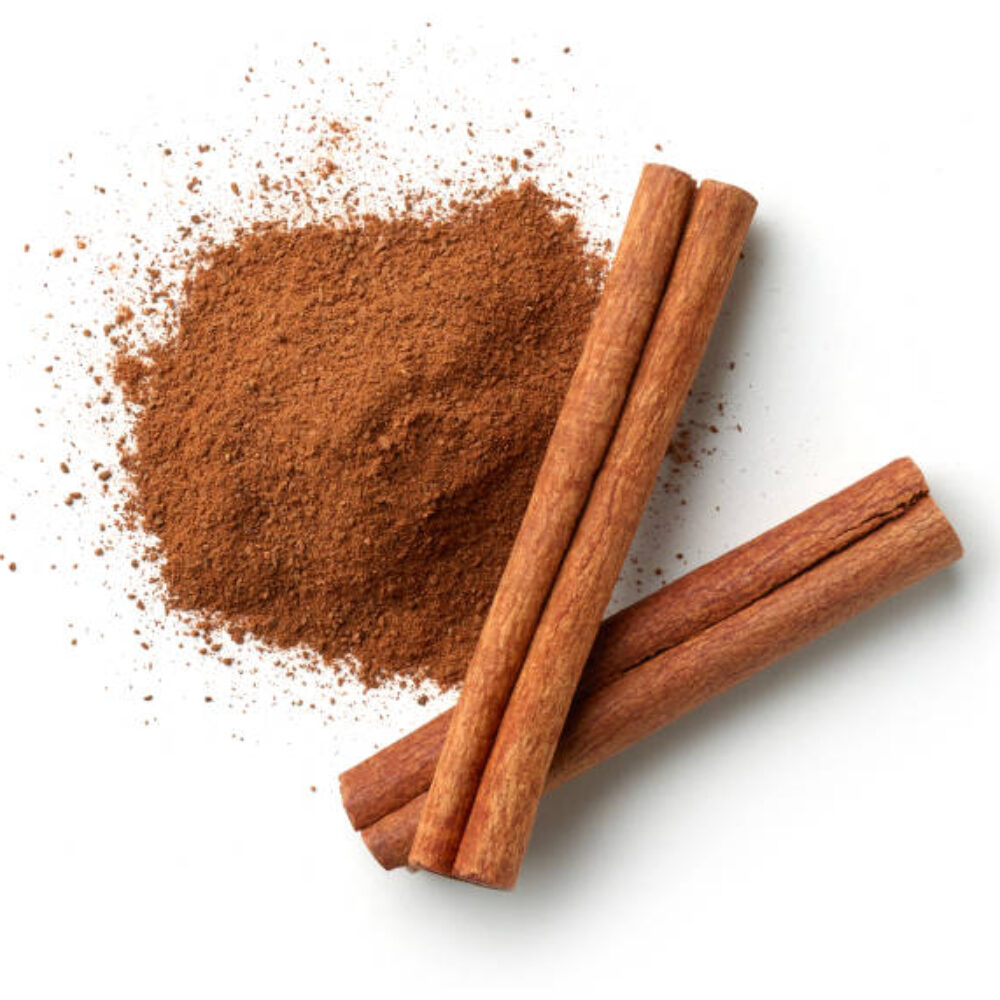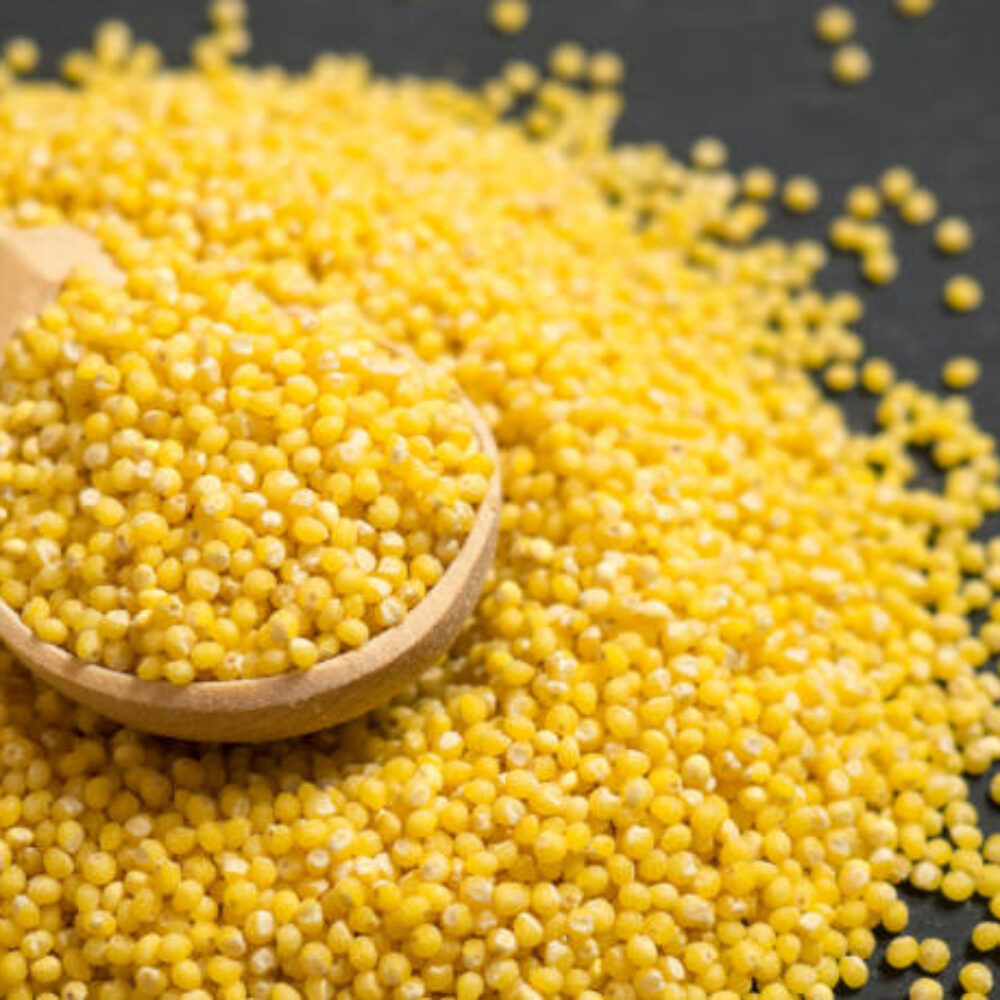Kimchi is a traditional Korean dish that originated over 3,000 years ago. The tradition of making kimchi began as a way to ferment and preserve vegetables during the cold winter.
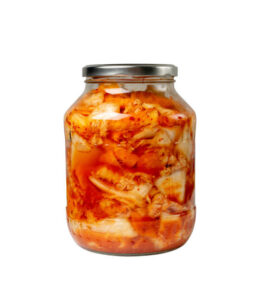
What is Kimchi?
Kimchi is a Korean dish made by fermenting vegetables, usually cabbage, cucumber, or radish, with spices like garlic, ginger, chili, and sometimes fish sauce. It’s like a spicy, tangy pickle full of bold flavors.
Beyond being tasty, kimchi is super healthy because it’s loaded with probiotics that support your gut and digestion.
It’s a staple in Korean cuisine and can be eaten on its own, as a side dish, or added to recipes like fried rice, soups, or noodles.
The nutrition value of 100 grams of kimchi:
| Nutrient | Amount per 100g | % Daily Value (DV)* |
|---|---|---|
| Calories | 15–25 kcal | ~1% |
| Carbohydrates | 2–4 g | 1–2% |
| Protein | 1–2 g | 2–4% |
| Fat | < 0.5 g | < 1% |
| Fiber | 1–2 g | 4–8% |
| Vitamin A | ~17–30 µg | 2–3% |
| Vitamin C | 18–21 mg | 20–25% |
| Vitamin K | 43 µg | 35–45% |
| Folate (B9) | 52 µg | 13% |
| Calcium | 33 mg | 3% |
| Iron | 0.5–1 mg | 5–8% |
| Potassium | 150–200 mg | 4–5% |
| Sodium | 500–700 mg | 25–30% |
*Percent Daily Value (%DV) is based on a 2,000-calorie diet.
Health Benefits of Kimchi
Kimchi is a superfood containing goodness. Here’s why it’s so good for you:
1. kimchi is good for your gut health
Kimchi is made through fermentation; it also contains probiotics, which are types of live bacteria that are highly beneficial for gut health.
Kimchi is highly beneficial for the intestines and helps prevent gastrointestinal problems. In addition, the probiotics in kimchi can also help prevent many other health problems.
It can help ease symptoms of irritable bowel syndrome (IBS) and improve bowel health.
For more information, read this research:
2. Boosts Immunity
The probiotics in kimchi help improve the digestive system, thereby enhancing immune functions.
The fermentation process used to make kimchi involves the bacterium lactobacillus, which boosts the immune system and reduces inflammation caused by disease.
Additionally, the vitamin C in kimchi also boosts the immune system.
3. Reduces Inflammation in the Body
Inflammation occurs in our bodies for various reasons. Probiotics and anti-inflammatory ingredients in kimchi, such as HDMPPA, an active compound, reduce this type of inflammation.
4. Aids in Weight Loss
Kimchi is low in calories but high in fiber, making it helpful for weight loss. Research suggests that the Korean kimchi diet can lower LDL (harmful) cholesterol levels in the body.
5. Cancer Prevention
Eating fermented vegetables like kimchi, which are made from cabbage and other similar vegetables, might help lower the risk of some cancers, including breast cancer. However, scientists believe more research is needed to understand and confirm how it works fully.
Easy kimchi Recipe (Napa cabbage kimchi and Cucumber kimchi)
Here, we share an easy recipe for napa cabbage and cucumber kimchi. Both recipes are full of probiotics, easy to make, and loaded with bold flavors that’ll brighten up any meal.
Whether you’re a kimchi newbie or a seasoned fermenter, these recipes will make your taste buds (and your gut!) happy.
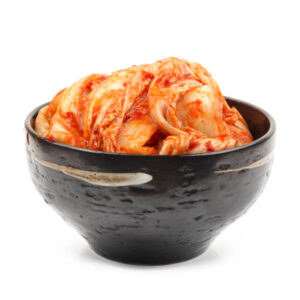
1. Napa cabbage kimchi
Napa cabbage kimchi can be easily made at home with just a few ingredients.
Ingredients:
- One medium-sized napa cabbage
- 1/4 cup non-iodized salt
- 5–6 cloves of garlic, grated
- 1 teaspoon of ginger paste
- 1 teaspoon sugar
- 2 tablespoons fish sauce or shrimp paste
- 1-5 tablespoons gochugaru or Korean chili powder
- 1 tablespoon onion batter
Method:
- First, wash the cabbage well and cut it into quarters. Then, add salt to the cabbage quarters in a large bowl. Add enough water to cover the cabbage completely.
- Cover this mixture tightly with something heavy and let it sit for 2 hours.
- Afterward, wash the cabbage three times with cold water and let it sit for 15 to 20 minutes.
- Prepare the spice paste by mixing ginger, garlic, sugar, and gochugaru to taste, along with fish sauce.
- cut the cabbage finely and squeeze out excess water. Then, thoroughly mix the cabbage with the spice paste. Wearing gloves is recommended for this step.
- Pack the kimchi tightly into a jar, leaving some space at the top. Close the jar and let it ferment at room temperature for 1 to 5 days.
- Open the jar once a day to release gases produced during fermentation. Afterward, store it in the fridge for delicious kimchi ready to eat.”
2. Cucumber Kimchi (Oi Kimchi)
Here, we share a cucumber kimchi recipe (oi kimchi recipe) using six pieces of cucumber.
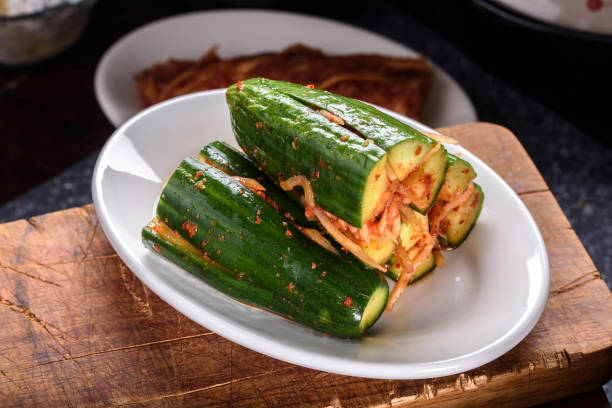
Ingredients:
- 6 pieces of cucumber
- Salt
- 1 cup of chopped spring onion
- 1 cup of chopped onion
- 1 piece of carrot, cut into thin matchstick pieces
- 4 cloves of garlic, minced
- ½ cup of chili powder
- 1 tablespoon fish sauce
- 1 tablespoon sugar
- 2 tablespoons sesame seeds
Method:
-
First, clean the cucumbers thoroughly. The cucumbers should be cut with their skins on.
-
Take a sharp knife and cut the cucumber to make a pocket. To cut the cucumber properly, follow the steps below:
- Choose small, crunchy cucumbers like Korean, Persian, or pickling cucumbers. They work best because they’re firm and have thin skins.
- Cut off both ends of the cucumber to remove any bitterness.
- Cut the cucumber into pieces about 2–3 inches long, similar to small handheld sections.
- Stand one piece upright on your cutting board. Take a sharp knife and make a deep “X” cut down the length of the cucumber, but here’s the trick: don’t cut all the way through! Stop about ½ inch from the bottom so the cucumber stays together.
- Gently pull the sections apart with your fingers to form a little “pocket” or opening. This is where all the spicy, delicious kimchi paste will go.
-
Now, rub salt onto all the cucumbers. Then, set them aside for 1 hour.
-
Take a bowl and mix all the ingredients: 1 cup of chopped spring onion, 1 cup of chopped onion, 1 piece of carrot cut into thin matchstick pieces, 4 cloves of garlic minced, ½ cup of chili powder, 1 tablespoon fish sauce, 1 tablespoon sugar, and 2 tablespoons sesame seeds.
-
Rinse the salted cucumbers lightly.
-
Then, stuff the spice and veggie mix inside the cucumbers.
-
Cover the cucumbers in a food-grade container and leave them at room temperature for 2–3 days. Make sure to turn them over in between and squeeze out the juice.
-
After 2–3 days, put them in the refrigerator, and you can eat them for about a week.
Please share your experience in the comments below about which kimchi tastes better for you. Also, please subscribe to our newsletter for more video recipes and gut health-related tips.
Some other fermented foods that are good for gut health are:
- Kefir: A fermented milk drink that is rich in probiotics.
- Kombucha: A fermented tea beverage.
- Yogurt: Yogurt is a good probiotic for gut health and a fermented dairy product.
- Apple cider vinegar: Fermented apple juice.
- Coconut kefir: Fermented coconut milk.
- Raw cheese: This is a fermented dairy product.
- Beet Kvass: Beet kvass is a fermented drink and a good source of probiotics that can help grow good bacteria in our gut. Beet kvass also means red beet kvass, fermented beets, and beetroot kvass.

Frequently Asked Questions About Fermented kimchi.
What does kimchi taste like?
Kimchi has a unique and bold flavor that’s hard to forget. It’s a mix of tangy, spicy, salty, and slightly sour all at once, with a crunchy texture that keeps things interesting.
The longer it ferments, the stronger and more complex the flavors become, like how a fine cheese develops over time.
How do you add fermented food to your daily diet?
If you want to improve your gut health, you should add fermented food to your diet. Fermented food is very essential for your gut health. It will increase the good bacteria in your gut. Now we will share how to add fermented food to your diet:
- First, start your day by drinking kombucha, and while you have breakfast, add yogurt or kefir to your diet. You can mix rice and yogurt and eat it; it is a good probiotic for your gut.
- In the evening, during your snack time, you can eat some raw cheese and have some apple cider vinegar.
- Eat a variety of fermented foods and see which one you like most.
How much kimchi should be eaten in a day?
In general, anyone can eat 1-3 cups of kimchi per day. If you eat kimchi like this for some days, you will see the result.
Do not eat kimchi too much because it contains a lot of salt. overeating kimchi can cause obesity.
How long should kimchi be kept?
If you keep it in the refrigerator and away from oxygen, it will be delicious for up to 12 months.
Be aware that some people have food allergies, and if you have problems eating high-fiber foods, then eating kimchi may cause gas or vomiting.


